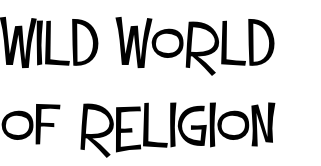

Cult, Occult, New Age—
What's the difference?
A Cult is a …
Group of People…
… who share an intense dedication to a particular individual or belief system.
This simple definition of cult can be applied to almost any type of group, whether focused on a religious belief system or not. Until recent times, the word was seldom heard outside of the academic world. Historians would use it to label aspects of ancient societies, such as the "Cult (or Latin cultus) of the Emperor" in Rome. Sociologists would use it, sometimes interchangeably with the word "sect," to indicate a small religious group outside the mainstream of "historical Christianity." A few decades ago, one might even hear it used humorously to describe the fanatic devotion of some admirers of entertainers, such as the "Cult of Elvis."
However, all that changed in November 1978 when over 900 followers (including children) of a religious leader named Jim Jones committed mass suicide—and murder of the children—at Jones’ command in their religious compound in Jonestown, Guyana. In reports of this startling situation, Jones’s group was often referred to in the media as a cult. The grisly images of the death scene on international television and in print news left an indelible impression on most who saw them. From that point on, the public became more and more familiar with the word cult, as it was frequently used in the media to describe unconventional religious groups.
Although the original word has no specific negative connotation to it, its common
use now in our society carries the negative baggage of the Jonestown massacre and
numerous other subsequent troubling incidents connected to the activities of unconventional
religious groups. One such was another mass suicide of 39 adults in 1997 involving
a non-
There is really no use in attempting to avoid use of the word cult, as it is so pervasive in our society now. Nor is there a need to insist that it must be completely confined to its totally neutral definition above. The reality is that it is no longer a neutral word. We may as well use it, but carefully define it in the context in which we choose to communicate.
For the purposes of this website,
a modern religious cult will be defined as
a group of people established by one leader or a small group of leaders,
to whom they are intensely dedicated and obedient,
and who have such a significantly unique set of beliefs
that they are cut off from religious fellowship
with all others outside their own group.
Given this definition of modern religious cults, the following observations may be helpful when evaluating the potential for serious spiritual harm of any given such cult. (These observations include reference to the words New Age and occult. Definitions and descriptions of those terms follow this list.)
Religious cults frequently:
- Are started by one very persuasive teacher/leader
- Have a tightly organized and restricted membership
- Are convinced they have the only acceptable way of life
Many religious cults do not:
- Have any occult or New Age connections or beliefs
- Have radical or violent tendencies
- Use "brain washing" to get or keep members
Some religious cults may:
- Rely on fear to keep members in line
- Rely on isolation to keep members away from other teachings
- Use Christian terminology, but be unbiblical in their definitions
- Disguise their actual teachings when dealing with the public
The Occult is the …
Collection of Beliefs and Practices …
…that are based on the idea that there is a supernatural world
that Man can tap into in order to
control the environment or other people through
Secret, special knowledge and rituals.
Even though they sound similar, the words occult and cult do not have the same root origin, and are not specifically related. Therefore:
- An individual can be involved in occult activities without belonging to a cult.
- An individual can belong to a cult and yet not be involved in any occult activities at all.
Examples of occult activities and beliefs:
- Ouija boards
- fortune-
telling - astrology
- witchcraft
- tarot cards
- certain role-
playing games such as Dungeons and Dragons - voodoo
- palm reading
- spiritualism/ spiritism (attempting to or claiming to contact the dead)
- belief that the material world—including the bodies and minds of others—can be manipulated just by the power in magical words or gestures
- belief that individuals can gain wealth and power through magical words or gestures
New Age is an adjective that describes the…
Collection of Beliefs and Practices …
… that are based on the idea that Mankind is about to enter into a "new age"
of peace, prosperity and spiritual enlightenment
brought about by Man's own efforts to change himself.
Many "New Age" teachers believe Man will be able to do this as a result of contact with "higher spiritual beings" who will teach him to be "at one" with the universe.
- New Age as a label for this specific concept is a fairly recent term.
- The term New Age Movement describes a wide variety of beliefs and practices. There is no carefully organized "New Age Movement" that covers all the related individuals, groups and practices.
- Some occult practices are used by some in the New Age Movement.
Examples of New Age ideas and practices:
- Reincarnation
- Transcendental meditation, other types of non-
Biblical meditation - "Channeling"(claiming to speak messages for "ascended masters"—humans who have become exalted spirit beings)
- Astral projection (claiming that your "soul" or "spirit" can leave your body at will to travel throughout time and the universe)
- Belief that humans are not special creations in the image of God and are of no more value than animals and plants
- Belief that there is not an "external" Creator God who made the universe—rather that "god"is within everyone already just waiting to be tapped into
***** Some occult and New Age practices and ideas may be counterfeits of actual Biblical ideas and practices. However—
Many serious Bible students are concerned that occult and New Age ideas and practices are creeping into television preaching that is called "Christian" and being spread by books and tapes available in Christian Book Stores.
Many sincere Christians are worried about having loved ones involved in cults such as the Branch Davidians or the Heaven's Gate group. They can see the danger of these cults clearly, when the results are so violent.
But when there are new teachings being offered by "regular Christian" teachers, these
same Christians may let down their guard and accept ideas and practices that are
every bit as un-
And when there are those who teach much sound doctrine who, at the same time, use
some of the methods of a cult to get or retain members, and who may even be using
subtle variations of occultic and New Age ideas masquerading as Christian, Biblical
principles, sincere Bible students may be swept along into un-
Let us "search the scriptures daily, whether these things be so," for John warned:
Dear Friends, do not believe every spirit, but test the spirits to see whether they are from God, because many false prophets are gone out into the world. I John 4:1 (NIV)
One of the goals of this website is to call attention to those ideas and methods
used by some well-
Unless otherwise noted, all original material on this Field Guide website
is © 2001-
Careful effort has been made to give credit as clearly as possible to any specific material quoted or ideas extensively adapted from any one resource. Corrections and clarifications regarding citations for any source material are welcome, and will be promptly added to any sections which are found to be inadequately documented as to source.
Return to Top of Page and the Navigation Bar